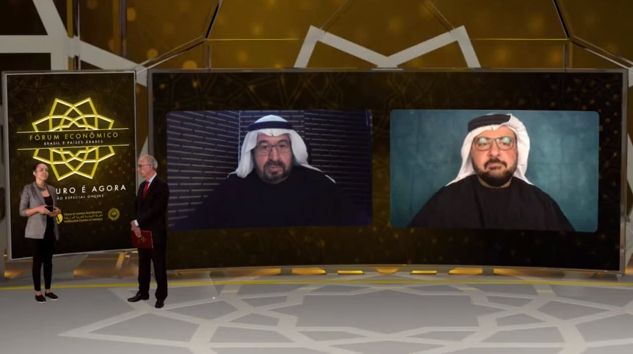São Paulo – For the director of International Offices at Dubai Chamber, Omar Khan, it is a responsibility of the Dubai Chamber to lead the necessary changes and inspire its members with its own examples. “In the past, sustainability was at the border of the companies’ budgets,” he said. “Now everything is connected. It’s not about saving the planet – it’s about saving the humankind,” he said during the “Discussion among Chambers” at the Economic Forum Brazil & Arab Countries.
By 2050, Dubai’s goal is having 75% of its energy from clean sources. So, the city is decentralizing its energy distribution systems and creating packages to take solar energy to the people’s homes. “We started by setting an example with the Chamber’s headquarters,” Khan said. “Even though it is a 25-year building – and many said this would be a hindrance – we managed to get a sustainability certificate.”
The Chamber has also created a seal to acknowledge the best sustainable practices of companies and digitized 100% of its services, thus meeting Dubai’s goals – by 2021, the city will have completely eliminated the use of paper in its government office.
The interchange of these experiences with Brazil, done by the Chambers of Commerce, will be reinforced with the partnership of the Arab Investor Awards. According to its president, Narheem Sabbah, the award that rewards efforts in support of sustainability will soon go to South America. “This makes us very happy, as it goes a long way for Brazil and other countries in the region,” he said.
The debate also featured Tripoli Chamber of Commerce president Simon Bachawati. He said he was inspired by the experience of his colleagues in the Arab Chambers to build plans for Lebanon. “Our context was affected by an economic and political crisis, but we hope to put Tripoli back on the Middle East’s commercial map,” he said.
In the last two years, Bachawati said, the Chamber has tried to take on the government’s role to answer to the needs of the citizens of the North of the country. “We launched initiatives for the urban economic development and, in 2006, we created a business incubator,” he said. “We adopted an open-door policy.”
The debate was moderated by Arab Brazilian Chamber of Commerce president Rubens Hannun and Institutional Relations manager Fernanda Baltazar. ABCC hosted the forum in partnership with the Union of Arab Chambers and the Arab League.
Check out the full coverage on ANBA.
* Reportagem de Camila Balthazar, especial para a ANBA.
Translated by Guilherme Miranda




